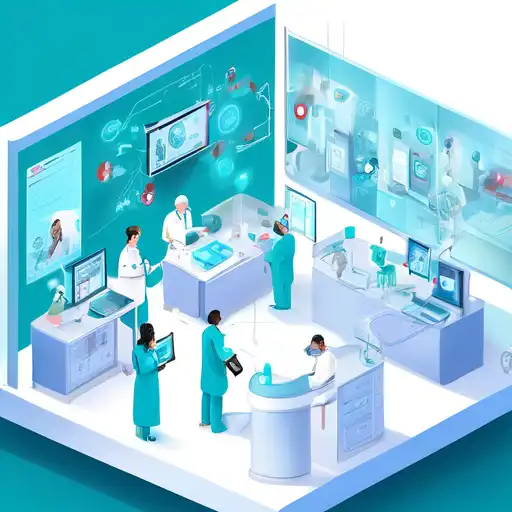The Revolutionary Role of IoT in Healthcare
The Internet of Things (IoT) is revolutionizing healthcare services by enabling smarter, more efficient, and personalized patient care. From remote monitoring to advanced diagnostics, IoT technologies are paving the way for a future where healthcare is more accessible and effective than ever before.
Remote Patient Monitoring
One of the most significant benefits of IoT in healthcare is the ability to monitor patients remotely. Wearable devices and sensors can track vital signs such as heart rate, blood pressure, and glucose levels in real-time, allowing healthcare providers to offer timely interventions without the need for hospital visits.
Enhanced Patient Care
IoT devices are also enhancing patient care by providing healthcare professionals with accurate and up-to-date information. This enables personalized treatment plans and reduces the risk of errors, improving overall patient outcomes.
Streamlined Operations
Beyond patient care, IoT is streamlining healthcare operations. Smart inventory systems can track medical supplies, while connected devices ensure that equipment is functioning correctly, reducing downtime and improving efficiency.
Challenges and Considerations
Despite its benefits, the integration of IoT in healthcare comes with challenges, including data security and privacy concerns. Ensuring the protection of sensitive patient information is paramount as the industry continues to adopt these technologies.
For more insights into how technology is shaping the future of healthcare, explore our articles on digital health trends and the future of medical technology.
Conclusion
The impact of IoT on healthcare services is undeniable. By improving patient care, streamlining operations, and enabling remote monitoring, IoT technologies are setting the stage for a more efficient and accessible healthcare system. As the industry continues to evolve, the potential for IoT to transform healthcare is limitless.
